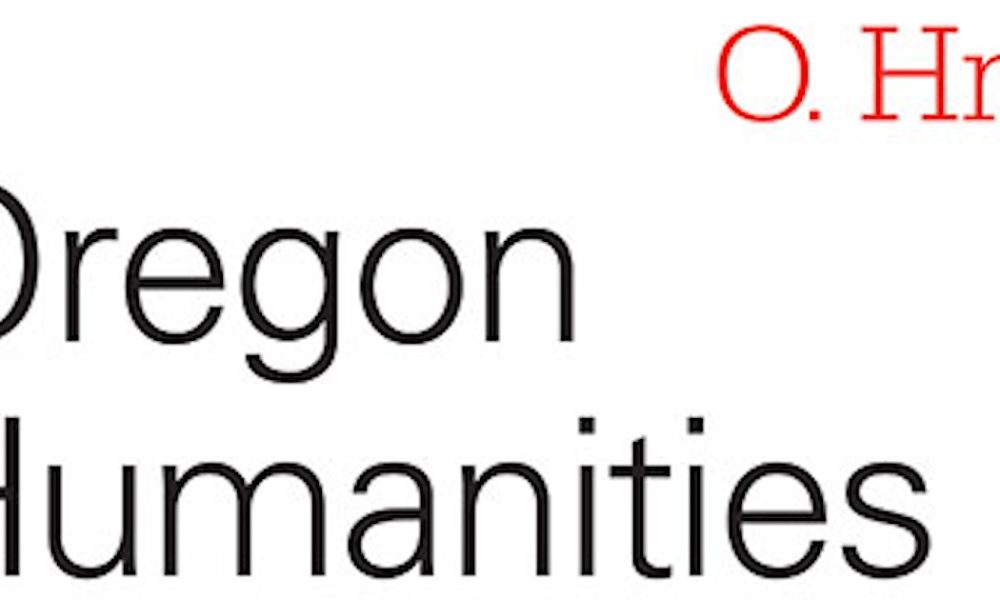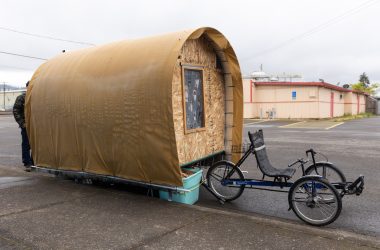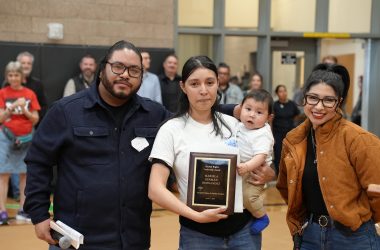
”Who are the deserving poor” was the question of the Oct. 18 Oregon Humanities conversation about poverty. The 10th conversation in the series, the event was sponsored by the City of Springfield and was attended by 11 individuals, both in the community and on the Diversity Committee through the City.
The goal of the conversation is to ”connect people to ideas and to each other, not to push an agenda or arrive at a consensus,” Vahana Keene, one of the committee members said in her talking points.
The moderator for the conversation was Erica Tucker from Portland, who is a social worker that works in the world of affordable housing, where she manages the resident services at the Resilience, Education, Adventure, Community and Health (REACH) Community Development.
Tucker learned about Oregon Humanities through her job, and she said hosting a conversation instead of a lecture ”felt more meaningful to me and a greater tool for change.”
”I don’t know people who learn about (poverty) in school,” she said. ”Any chance I get I want to talk to people about it and answer questions. It impacts the way we interact with each other, and make decisions and policies.”
The conversation opened with everyone going around the circle and telling the story about how they first encountered poverty. Stories ranged from attendees learning that their family struggled with poverty, immigration poverty to individuals who didn’t find out until they were older what poverty even was.
Tucker said she opened with that question because it’s ”hard to walk away and forget stories.”
The attendees were then told to break into groups and discuss three questions: who are the deserving poor? What does poverty look like? And what is the cause of poverty? The group then came together to unpack each question.
After the conversation, one member Kayla Janice said it was important to have the discussion because it has ”clearly impacted people’s lives,” and change starts by communication.
Common themes that were present in the conversation was the idea of competition, and the idea that there isn’t enough resources. Members of the community expressed that even if they struggled in paying for food, at least they had a house, and there’s always someone worse off.
”Poverty exists, and it has existed for a very long time,” Tucker said. ”It’s important folks make the connection between poverty and all the other social justice issues they’re interested in as far as mental health, unemployment and affordable housing.”
Keene said the conversations are a great tool to have open dialogue, hear different points of view, listen and learn from each other.
The discussion went over the allotted time by around 10 minutes, because participants had last minute thoughts they wanted to share.
James Anderson, who is also on the Diversity Committee as well as the City of Springfield street crew, said that this is a benefit to the community and a way to update the culture around poverty.
At the end, Tucker said she hoped everyone got more comfortable talking and asking questions.
”I hope they get more connected with hearing each other’s stories of people living in poverty,” she said. ”I hope they see it as a diverse issue, and not what we see in magazines or TV.”
The next conversation will be held Nov. 15 at 6 p.m. at the the Springfield City Hall, 225 5th St. The conversation is called ”Sentenced for a Season, Punished for Life,” hosted by Pamela Slaughter.








